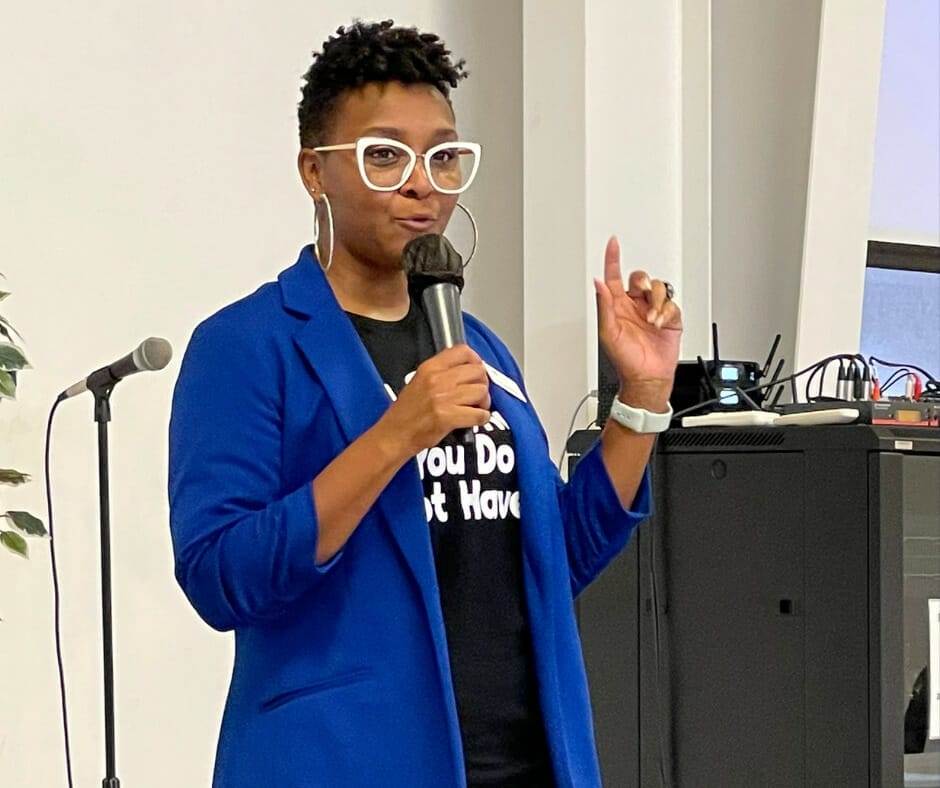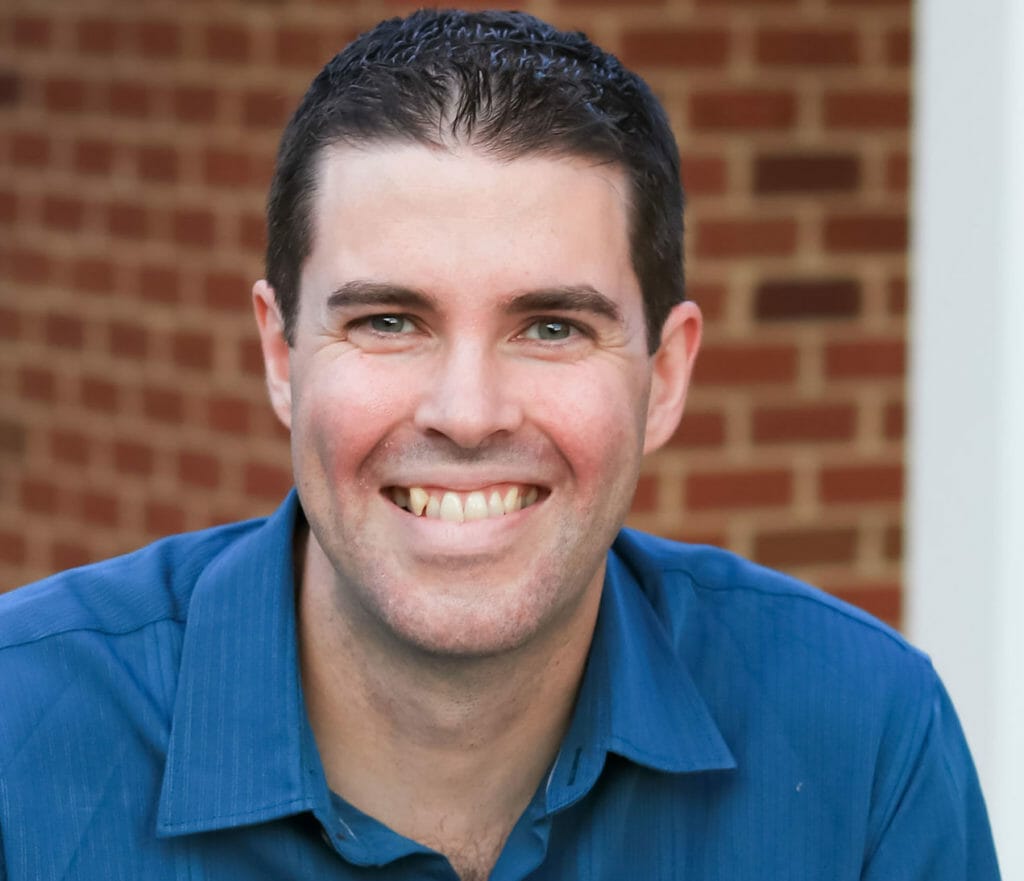By Jonathan Davis
(SAN ANTONIO, TX) On a Tuesday evening in the sweltering North Carolina July summer, a student named Debbie powers up her laptop from her home to join her weekly class. Debbie and her wife have worked for years with a local agency that serves homeless adults who also have special needs. In addition to serving in the nonprofit space, Debbie pastors a local congregation, and she often feels the need to build a network of colleagues for support and encouragement.
As Debbie logs onto her Google Meet class for the night, she joins students from different diverse ministry contexts, including an urban pastor from New Jersey, a church planter and campus minister in Amsterdam, and the director of the Mt. Olive Children’s Center orphanage in Homa Bay, Kenya, just minutes from Lake Victoria. These students are separated by thousands of miles and have never met in person, but they are united in several ways. The new seminary these students are a part of is called Fletcher Seminary, based in San Antonio, Texas.

First, each student has a need for remote learning in obtaining theological education and ministry training. Several factors contribute to this, including that each student is already serving in ministry. In the world we live in, students are increasingly unlikely to live in residence for multiple years to obtain training for any kind of vocation, including ministry. The Association of Theological Schools (ATS), the main accrediting body in North America for seminaries of all kinds, has recognized this trend. Only in recent years, however, has ATS shifted its accreditation standards to allow for one-hundred percent online graduate level degrees. By being able to study online to obtain ministry training, students can either go where God has called them to serve or stay planted where God has already led them to serve.
The second thing each student has in common is a need for cost-effective educational models. In a recent report titled Economic Challenges Facing Future Ministers, ATS reports that in the last 20 years the cost of seminary has increased 129% while the amount of aid per full-time-student given by religious organizations has decreased by 30%.
The average seminary graduate, according to ATS, carries $44,500 in student debt upon graduation. Consequently, within the first five years of ministry the report found that 38% of students take an extra job, 33% seek a higher paying job, and 19% postpone healthcare. In short, many existing and past models may prove economically unsustainable for young clergy who begin their vocations saddled with debt, often while caring for dependents.
To the extent that the Church needs to train and sustain future ministers in their calls, something has to change with ballooning educational costs. This is why Fletcher Seminary has published a book called How To Save Thousands In Seminary, which is filled with nearly a hundred pages of practical advice and tips for cutting costs in grad school. Additionally, Fletcher is committed to keeping costs low, and has little overhead since it owns no property. A congregation in San Antonio, Baptist Temple had graciously given education space to Fletcher, and because of the low overhead Fletcher currently has the most affordable tuition rates of any seminary in Texas. Additionally, nearly all Fletcher students receive financial aid.
Third, each student at Fletcher Seminary desires real-world training with a global outlook. The places in the world the Church is expanding most rapidly are non-anglo countries in the Global South. Many seeking theological education seek diverse representation and perspectives in their seminary education. With practically driven teaching and assignments that encourage students to apply their learning directly to their ministry contexts, Fletcher’s students are walking away from each class with a portfolio of projects and ideas they can immediately put to use in real-world ministry situations.
As a result of a summer term class called Communications in Churches and Nonprofits, orphanage director Yusuf Ooro developed a capital campaign plan to help raise funds to add three new rooms to the orphanage over the next two years, allowing the Mt. Olive Childrens Center to expand from serving 30 children to serving 45.

Pastor Ooro is already working with partners in Wisconsin, Texas, and Argentina, and plans to reach his goal in order to bring God’s love and hope to his corner of the world. His contact in Argentina is a tech and web-developer, and they are working to develop a website and app where ministries like Pastor Ooro can share real-time updates to build trust and transparency with partners and donors in more developed countries.
Finally, Debbie and the other students in her class are all seeking theological education that is open and affirming to LGBTQ+ siblings and that has a heart for other groups often marginalized by church and society, like women and the BIPOC community. The San Antonio metro area is one of the largest in the United States with 2.6 million residents, and Fletcher Seminary is the only open and affirming school in the city providing graduate theological education.
Moreover, Fletcher Seminary is multi-denominational, taking a big-hearted and big-tent approach to training ministers for tomorrow. With a freestanding board, Fletcher is not tethered to traditioned denominations which ensures academic freedom and insulates the school from growing fundamentalism and Christian Nationalism in Texas. While legislators in the state capital are passing anti LGBTQ+ legislation, scapegoating drag queens, endangering trans lives, and limiting reproductive freedom, Fletcher is building a culture of radical inclusion and grace that stands in stark contrast.
With offices in San Antonio, Fletcher is arguably the closest progressive seminary to the humanitarian crisis on the U.S. and Mexico border. Fletcher is working with partners in the Texas valley to develop training for migrant pastors who are planting house churches and providing spiritual care to thousands living in Colonias (which are migrant shanty-towns presently outlawed by Texas legislators).
There are other seminaries doing new and exciting things, and Fletcher Seminary is excited to be in their number. God is not done with the Church, and not done calling people to vocational ministry. As the landscapes of the Church and of higher education continue to change in the U.S., students will continue to need access to remote learning, cost-effective, real-world, justice-and-compassion-centered ministry training.
Fletcher Seminary hopes to be a part of the answer to that call and offers Master of Divinity and Master of Arts In Christian Ministry degrees, in addition to an already robust and expanding Certificate Program. For more information on Fletcher Seminary, visit www.fletcherseminary.org.

Rev. Dr. Jonathan Davis is the Associate Vice President of Communications and CIO of Fletcher Seminary. He also serves as a Preaching Pastor at Peace of Christ Church, an Alliance of Baptists congregational partner in Round Rock, Texas.




Recent Comments